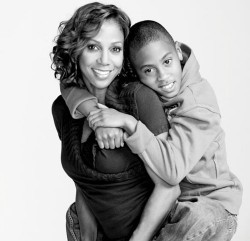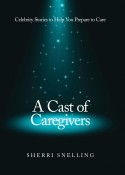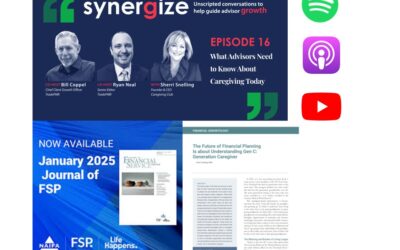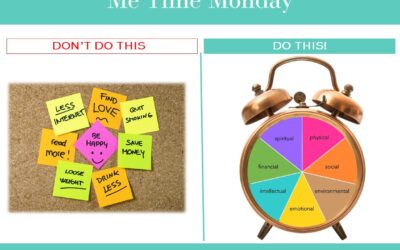 As I watched the Grammy Awards tonight, it brings to mind the power of music to heal us. Numerous studies have shown the therapeutic effects of music for those with everything from Alzheimer’s disease to autism.
As I watched the Grammy Awards tonight, it brings to mind the power of music to heal us. Numerous studies have shown the therapeutic effects of music for those with everything from Alzheimer’s disease to autism.
When it comes to Grammy winners, none are bigger than Glen Campbell and Quincy Jones – both of whom are touched by caregiving and music therapy.
I interviewed Kim Campbell, who is now caregiver to her husband, country music icon Glen Campbell diagnosed in 2012 with Alzheimer’s, she said music has helped her 77-year-old husband to cope with his diagnosis when he toured during his Farewell Tour a couple of years ago. During one concert stop, Campbell forgot the chorus to one of his smash hit songs but the audience sang the lyrics for him and he was able to regain his memory of the song without missing a beat on his trusted guitar.
I also spoke to music legend and multiple Grammy winner Quincy Jones about his latest passion projects which include the amazing effects of music as therapy for children with Down Syndrome and older Americans with dementia.
Is music one of the keys to a longer, happier life – despite your health issues?
Although music has been with us since the dawn of time, in the last few decades studies have proven that music as a therapeutic tool can increase cognitive function in Alzheimer’s patients, help premature infants gain weight, encourage autistic children to communicate, lead stroke patients to regain speech and mobility, control pain for dental, surgical and orthopedic patients and manage anxiety and depression for psychiatric patients.
Dr. Oliver Sacks, a renowned neurologist and psychologist at Columbia University Medical Center best known for his 1973 book Awakenings, which became an Academy Award-nominated film starring Robin Williams and Robert De Niro, and who also wrote Musicophilia: Tales of Music and the Brain, testified at the Hearing before the Senate Special Committee on Aging entitled, “Forever Young: Music and Aging,” and issued this statement:
“The power of music is very remarkable… One sees Parkinsonian patients unable to walk, but able to dance perfectly well or patients almost unable to talk, who are able to sing perfectly well… I think that music therapy and music therapists are crucial and indispensable in institutions for elderly people and among neurologically disabled patients.”
Brain Fitness Through Music
Since music is associated with one of the five senses – hearing – which is controlled by the brain, it makes sense we should exercise our brains with music listening to spur cognitive function in the same way we use physical therapy to exercise our limbs, muscles and joints to regain mobility and physical function.
Studies have shown that music reduces agitation or improves behavioral issues such as violent outbursts in dementia patients. In one pilot program, 45 patients with mid to late-stage dementia had one hour of personalized music therapy, three times a week, for 10 months, and improved their scores on a cognitive-function test by 50 percent on average. One patient in the study recognized his wife for the first time in months. Another music therapy study showed that stroke victims can learn to walk and use their hands again.
And music therapy is not just used with older patients. When it comes to those children diagnosed on the autism spectrum, music therapy allows these children to develop identification and appropriate expression of their emotions – music becomes the universal language. Many people with diagnoses on the autism spectrum have innate musical talents so music therapy can provide these kids a sense of accomplishment and success.
When I spoke to Holly Robinson Peete, the successful actress, talk show host and singer, about her son R.J. who was diagnosed at age three with autism, she said he loves music and he has even recorded a song. In fact, Holly finds music a great way for her entire family to connect with R.J. and to enter his world.
She told me, “I think music makes him more comfortable – it is a way for R.J. to communicate without being judged.”
Music – A Cure for Caregiver Chaos
Music as therapy is not just for your loved one. We know caregivers encounter increased stress over caring for a loved one – in fact caregivers who reported their health was impacted by caring for a loved one cite stress as their No. 1 challenge. Studies show listening to music can lead to increased secretion levels of melatonin, a hormone associated with mood regulation, lower aggression, reduced depression and enhanced sleep. Using music to cope with these common caregiver complaints can be a welcome relief to caregiver burn-out.
How to Use Music in Your Caregiving Plan
The 2008 documentary Young @ Heart showcased a chorus of 80-year-olds singing Beatles, Rolling Stones and Sonic Youth cover songs, but most experts agree that with an older loved one it is best to choose music that reminds them of an earlier, happier time in their lives. Here is my 5-Note Caregiver Music Therapy Program:
- Discover the “happy times tunes”: Talk to your loved one about happy times in their life and understand the music associations with that time are essential to their sense of happiness. Whether it is big band, gospel, rock ‘n’ roll, country, opera or blues, find out what tunes make your parent or spouse smile. Most older loved ones, especially Alzheimer’s patients who retain long-term memory as opposed to short-term memory, find tunes from their youth the most joyful. But be careful, music can also evoke sad memories. One Holocaust survivor in a pilot program reportedly became very upset upon hearing a Wagner opera which reminded him of that traumatic era of his life.
- Engage younger generations: You can help create emotional intimacy when spouses and families share creative music experiences. Whether it is downloading songs from iTunes, creating a Pandora play list or using the latest technical creation for digital music files, engage your kids in interacting with their grandparent or sibling with special needs to choose their favorite music.
- Pick the right setting: It may not be as simple as turning on a radio. The radio can be distracting with constant advertising that breaks the peace of music. Instead, try internet radio like Pandora channels, or use an iPod or CD player instead. And be careful with headphones – some may take comfort in the privacy of headphones while others will become irritated or uncomfortable. Also consider live music situations carefully. For author Gail Sheehy who wrote about her caregiving journey in Passages in Caregiving, being able to take her husband, who was suffering from cancer, to a last jazz night out on the town was a gift she will always treasure. But for special needs children and some older adults – the unsettling activity of a live concert or band can be frightening.
- Let your music play: As a caregiver music is your therapy as well. Whether it is creating your own playlist to lift your mood when you have the blues or just taking pleasure in watching your loved one become engaged, music can make your heart soar. Celia Pomerantz, author of A Mother’s Daughter’s Journey, found that her mother, who grew up in Puerto Rico, loved a certain era of salsa music such as Tito Puente. She created song lists of her mom’s favorite tunes while her mother was in a nursing home. Celia became enchanted as her mother blossomed into the woman residents called “the dancing queen.” The joy of music and watching her mother dance lifted Celia’s spirits about her mother’s Alzheimer’s diagnosis.
- Find a professional music therapist: The American Music Therapy Association (AMTA), a non-profit organization that represents over 5,000 music therapists, corporate members, and related associations worldwide offers information about music therapy studies and a listing of credentialed music therapists that offer services in institutional, residential and private home settings.
Music can both evoke and create memories that last forever. I close with this heartwarming story from the AMTA web site:
When a couple danced together for the first time after five years of the husband’s deterioration from probable Alzheimer’s disease, the wife said:
“Thank you for helping us dance.
It’s the first time in three years that my husband held me in his arms.”
Tearfully, she said that she had missed him just holding her
and that music therapy had made that possible.
This blog is adapted from A Cast of Caregivers – Celebrity Stories to Help You Prepare to Care available at online and retail booksellers worldwide.








In the end, the information will aid us.
As for your thoughts on drop offs, we are facing that same concern in Australia today and are attempting to
address it. To be sincere, any functions Director or above are generally
direct sourced and to your point, they are a lot more high
touch and the recruiters frequently wind up creating their profile for them.